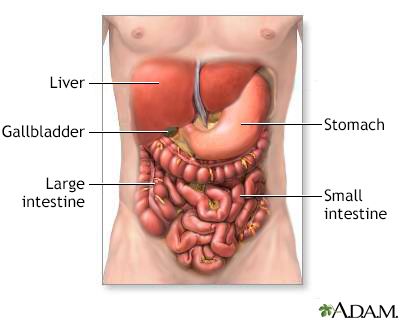Shigellosis

Shigellosis, also known as bacillary dysentery, is an infectious disease caused by a group of bacteria called Shigella. This condition primarily affects the digestive system, causing diarrhea and abdominal discomfort. Shigellosis is a global health concern, particularly in areas with poor sanitation and hygiene practices.
What is Shigellosis?
Shigellosis is an intestinal infection caused by the Shigella bacteria. The bacteria are typically spread through the fecal-oral route, commonly from contaminated food or water, or by person-to-person transmission. Shigella bacteria can survive in the intestines and cause infection, leading to symptoms ranging from mild to severe.
Who's at Risk for Shigellosis?
Anyone can contract shigellosis, but certain groups are at higher risk. This includes:
-
Children: Young children, especially those in daycare centers or crowded environments, have a higher risk of contracting shigellosis due to their poor hand hygiene practices and close contact with others.
-
Travelers: Individuals traveling to regions with inadequate sanitation systems are more susceptible to shigellosis. Consuming contaminated food or water in these areas increases the risk of infection.
-
Individuals with weakened immune systems: People with weakened immune systems, such as those with HIV/AIDS or undergoing chemotherapy, have a higher risk of developing severe shigellosis symptoms.
What Causes Shigellosis?
Shigellosis is caused by the Shigella bacteria, which have several species and subtypes. The bacteria enter the body through the mouth and make their way to the intestines, where they invade and damage the intestinal lining, leading to inflammation and the characteristic symptoms of the disease.
How Does Shigellosis Start?
Shigellosis typically begins with the ingestion of food or water contaminated with Shigella bacteria. Once inside the body, the bacteria multiply in the intestines and release toxins, leading to inflammation and damage to the intestinal walls. This results in symptoms such as diarrhea, abdominal pain, and fever.
What are the Symptoms of Shigellosis?
The symptoms of shigellosis can vary in severity, ranging from mild to severe. Common symptoms include:
-
Diarrhea: Shigellosis usually causes frequent, watery stools that may contain blood or mucus.
-
Abdominal pain and cramps: Individuals with shigellosis often experience abdominal discomfort and cramping.
-
Fever: A low-grade fever is common and may accompany other symptoms.
-
Nausea and vomiting: Some individuals may experience nausea and vomiting, although it is less common.
How is Shigellosis Diagnosed?
To diagnose shigellosis, healthcare professionals typically perform the following:
-
Medical history and physical examination: The doctor will ask about symptoms, recent travel, and potential exposure to contaminated food or water.
-
Stool culture: A stool sample is collected and sent to a laboratory to identify the presence of Shigella bacteria.
How Can Shigellosis be Treated?
The treatment of shigellosis aims to alleviate symptoms, prevent complications, and shorten the duration of the illness. It may include:
-
Rehydration: It is crucial to maintain hydration by drinking plenty of fluids, especially oral rehydration solutions containing electrolytes to replace lost fluids and minerals.
-
Antibiotics: In severe cases or for individuals at high risk of complications, healthcare providers may prescribe antibiotics such as ciprofloxacin, azithromycin, or trimethoprim/sulfamethoxazole to reduce the duration and severity of symptoms.
-
Rest and self-care: Adequate rest, proper hygiene, and good handwashing practices are essential for recovery and preventing the spread of infection.
What Complications May Occur with Shigellosis?
Although most cases of shigellosis resolve without complications, severe or prolonged infections can lead to complications such as:
-
Dehydration: Profuse diarrhea and vomiting can lead to dehydration, which can be severe, especially in young children and older adults.
-
Post-infectious complications: In rare cases, shigellosis can lead to post-infectious complications like reactive arthritis, seizures in children (febrile seizures), or hemolytic uremic syndrome (HUS), a serious condition that affects the kidneys and blood clotting.
How Can I Prevent Shigellosis?
Preventing shigellosis involves adopting good hygiene practices and following these guidelines:
-
Wash hands frequently: Proper handwashing with soap and water is crucial, especially before handling food, after using the bathroom, and after changing diapers.
-
Safe food and water: Consume only properly cooked food, drink safe water, and avoid raw or unwashed fruits and vegetables.
-
Maintain cleanliness: Ensure proper sanitation and cleanliness in food preparation areas, including hand hygiene for food handlers.
-
Stay home when sick: Individuals with shigellosis should avoid preparing food and interacting closely with others until they recover and receive clearance from healthcare professionals.
Long-Term Management of Shigellosis
In most cases, shigellosis resolves within a week without long-term effects. However, individuals should continue to practice good hygiene habits and follow preventive measures to avoid recurrent infections. If complications occur or symptoms persist, it is important to consult a healthcare professional for appropriate management and guidance.
What is Recent Research Saying About Shigellosis?
Recent research on shigellosis has focused on various aspects, including antibiotic resistance in Shigella strains, vaccine development, and strategies for improving sanitation and hygiene practices in high-risk areas. Scientists and healthcare professionals continue to work towards reducing the burden of shigellosis through better prevention, treatment, and control measures.
Where Can I Go for More Information on Shigellosis?
For further information and resources on shigellosis, reliable sources include:
-
Centers for Disease Control and Prevention (CDC): The CDC's website (https://www.cdc.gov/shigella/index.html) provides comprehensive information on shigellosis, including prevention strategies, treatment guidelines, and outbreak updates.
-
World Health Organization (WHO): The WHO's website (https://www.who.int/teams/immunization-vaccines-and-biologicals/diseases/shigella) offers global information on shigellosis, its prevention, and control measures, along with reports and publications related to the disease.
-
Local health departments: Contacting local health departments or governmental health agencies can provide region-specific information on shigellosis, including local guidelines, prevention campaigns, and outbreak notifications.

